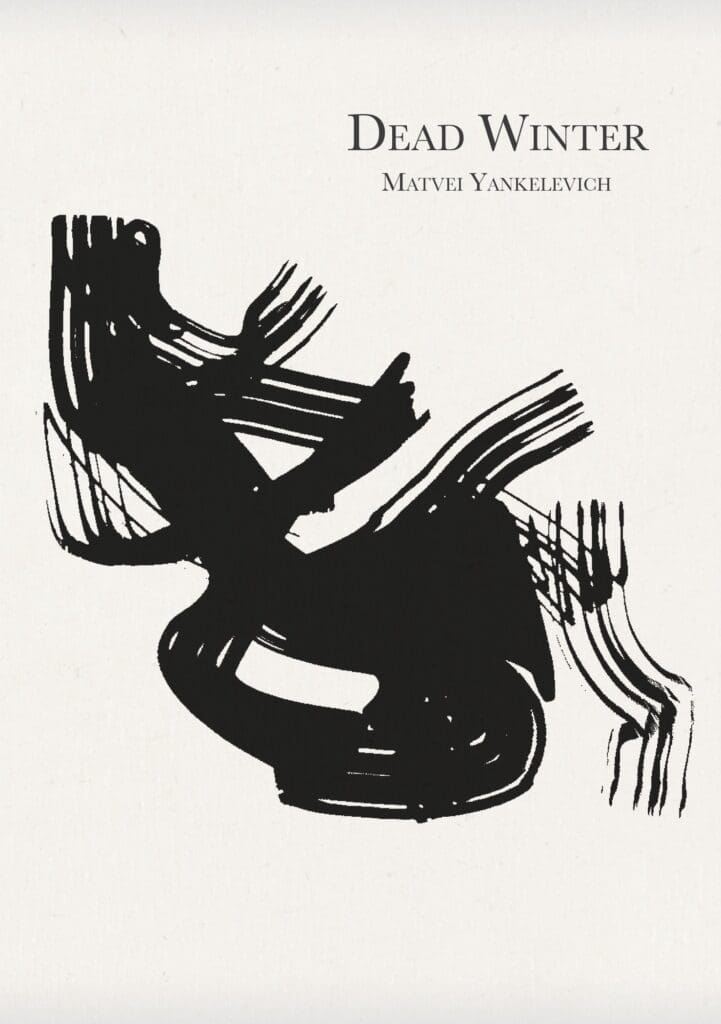Matvei Yankelevich’s latest poetry collection, Dead Winter (40 pages; Fonograf Editions), is a wheeling and melancholic address to winter as a mimetic object. “My task, my cross—to reassemble winter’s/ memory,” Yankelevich states in one the earliest of his twenty-seven poems. He meets this attempt to capture winter on the page by mounting an inquiry into the season as a site of recursion, ungovernability, and wasting.
Yankelevich pictures winter as an “abandon” forever short of expression. Within “imagined limits,” winter appears to modulate time in an alternately moldering and propulsive manner: “Of/ course, one can look out a window, one/ can float by, remark how one’s floating—dead winter running into winter.” Winter “retrofolds,” and belongs to “lists endlessly/ repeated in endlessly retreating worlds” whose iterations are felt throughout in textures and landscapes (“round as midnight”).
There’s an ambient recursion in Yankelevich’s language. “Word for word for word/ I change to pass through night in pace with night,” he writes. The reader is situated in a narrative that’s removed from, and actually falling behind, its own undertaking: “All the O’s roll out of reach, so should I/ roll there along with them to silence…” His verse moves urgently under threat or imminence of this silence; whatever he does catch of winter—or keep “pace” with, as he puts it—Yankelevich finds slippery and uncontained. “Winter,” he asks plainly, “have I lost your thread?/ Downwritten whole around you?”
At times the poems seems to tire of their project all together. They toy with, and ultimately resist, a certain resignation from language and the wrangling it requires. In one instance, Yankelevich describes writing as an imperative to “put forth exhaustion from which to recover, tame/ rhetoric in its wide, trembling circus tent.” Here rhetoric joins in the ungovernability of winter, a likeness evident in his descriptions of natural landscape.
As he follows this “thread” in language, Yankelevich confronts expressions in winter’s environment. “There’s brushwork turning/ in the bristles,” he writes. Elsewhere, he refers to winter as “a landscape in questions, old/ punctuation.” In “reassembling” winter, Yankelevich finds his own language imitative and incomplete… He refers to his writing in one case as a “poor copy,” and in another (more notably) as a “palliative effacement.”
“How one does what one does is now/ beyond me,” Yankelevich writes. His invocation of Stephen Rodefer at the opening of the collection captures this perplexity and the poems’ deference to the bungled intractability of time:
Of a sudden
life looks brief, just this mangled foam,
this form for which you’ve spared no part.

